
Los ojos de las vieiras sirven para construir telescopios Cariotipo
Stalking the Blue-Eyed Scallop. Euell Gibbons. Rowman & Littlefield, Apr 1, 2020 - Cooking - 332 pages. This foraging and cooking classic was first published in 1964 and has continued to be one of America's most appreciated works on the subject of seafood. As a young man, Euell Gibbons kept his family alive during the Dust Bowl era by.

In Love With a BlueEyed Hermaphrodite—The Peconic Bay Scallop Edible
If you are lucky enough to find a live scallop you will see its ring of bright blue eyes. Place it in a bucket of water and you will see it "swim" as it propels itself backwards by opening and slamming shut its shell. Check south side beaches for scallop shells during the winter. Oh, and don't forget the true locals say "scollup" not.

Blue Eyed Scallop Sticker 5 Inch Etsy
Argopecten irradians, formerly classified as Aequipecten irradians, common names Atlantic bay scallop, bay scallop, and blue-eyed scallop, is a species of scallop in the family Pectinidae. An edible saltwater clam, it is native to the northwest Atlantic from Cape Cod to the Gulf of Mexico . Right and left valve of the same specimen: Right valve.

Scallop Eyes Image National Geographic Photo of the Day
Scallop (/ ˈ s k ɒ l ə p, ˈ s k æ l ə p /) is a common name that encompasses various species of marine bivalve mollusks in the taxonomic family Pectinidae, the scallops.However, the common name "scallop" is also sometimes applied to species in other closely related families within the superfamily Pectinoidea, which also includes the thorny oysters.. Scallops are a cosmopolitan family of.

Blue Eyed Scallop Sticker 5 Inch Etsy
Description Stalking the Blue-Eyed Scallop is a lcassic adventure in personalized foraging along the sea shore. This handy pocket sized Field Guide Edition contains no land plants; strictly sea food. An excellent read of a simpler time. Stalking the Blue-Eyed Scallop is an excellent addition to your vintage Field Guide collection or home library. Condition Stalking the Blue-Eyed Scallop is in.
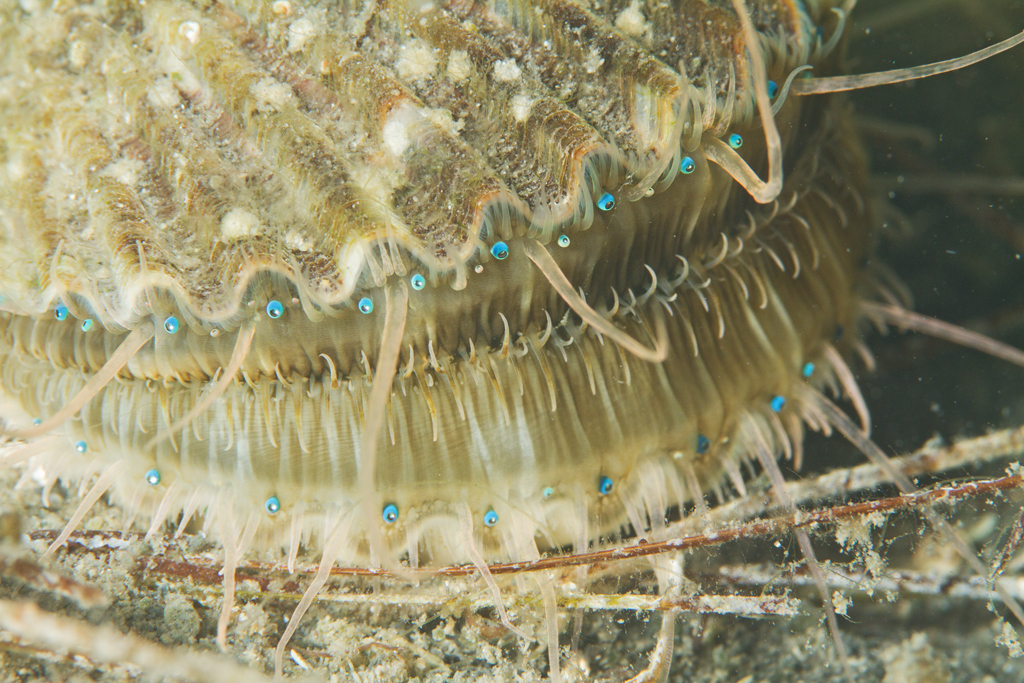
Blueeyed Bay Scallop Growing up snorkeling the clear wate… Flickr
The blue-eyed bay scallop A. irradians (a) and the black-eyed sea scallop P. magellanicus (b). The blue hues associated with some of the eyes of P. magellanicus are due to the reflection of light by the mirror at the back of each eye. Photo credits: David Liittschwager (a) and Sönke Johnsen (b). (Online version in colour.)
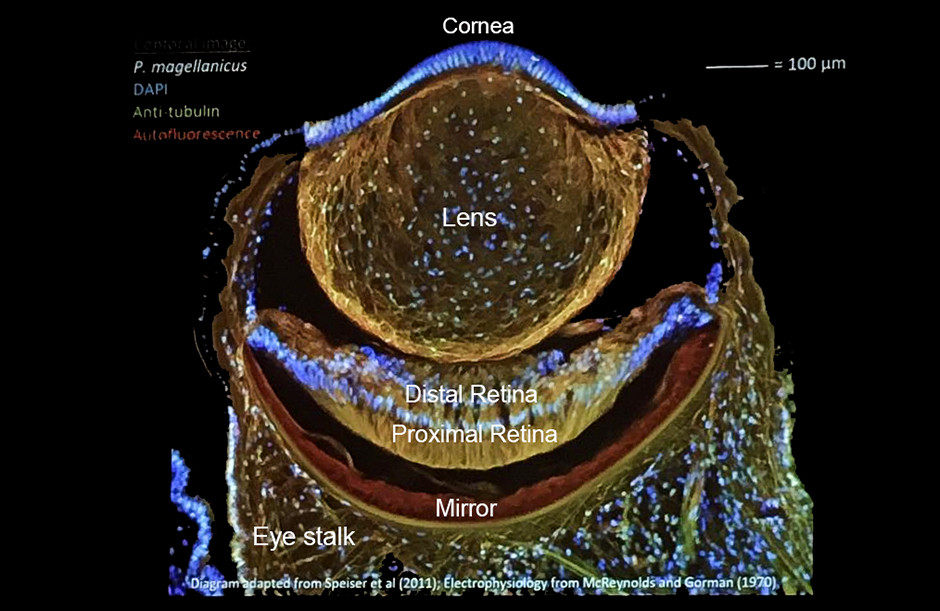
Scallops Have Charming Eyes
Learn more. STALKING THE BLUE-EYED SCALLOP. FIELD GUIDE EDITION. Paperback - January 1, 1970. by E. Gibbons (Author) 5.0 1 rating. See all formats and editions. Length. 0.

Blue Eyed Scallops Mary Richmond's Cape Cod Art and Nature
Description: Euell Gibbons' most popular book taught the art of foraging for wild edible and nutritious plants to the new back-to-the-landers and to others exploring alternative economic pursuits and foodways.The outdoorsman Gibbons produced a number of influential works which included Stalking the Blue-Eyed Scallop and Stalking the Healthful Herbs.
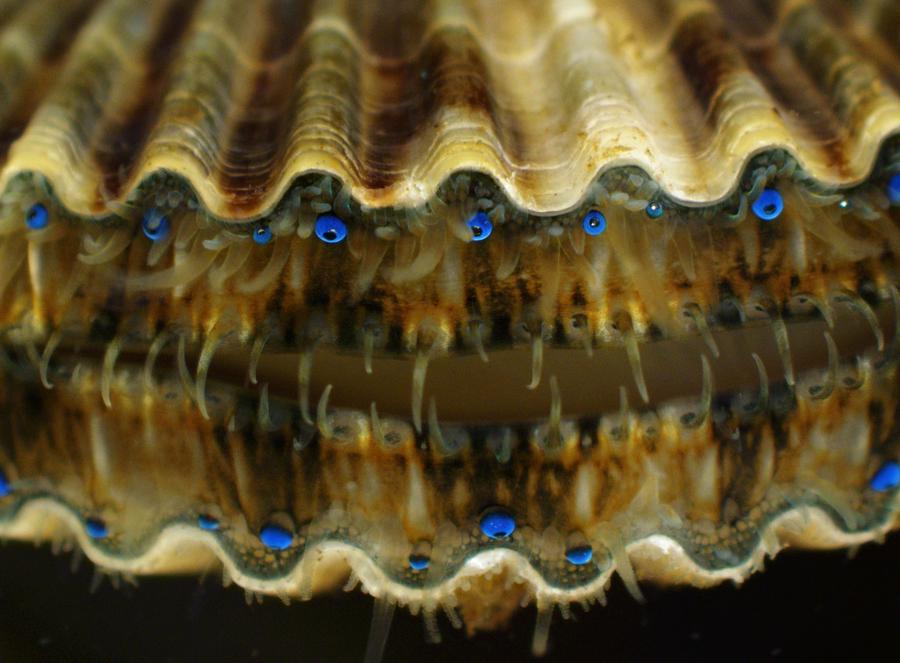
Life Under the Microscope The Atlantic
Scallops have a large number of small eyes deployed along the edges of their shells; Atlantic Bay Scallops have eyes of a brilliant blue color. Both species have complex eyes that include a cornea, lens, retina, and a concave, image-forming mirror. In addition to these features, the two species studied by Speiser are capable of narrowing their.

Alone Together Virtual Lecture Series “Hunting the BlueEyed Bay
6 Blue-Eyed Scallops-and Others 65. 7 The Common Periwinkle 76. 8 The Surf Clam: Abundant and Delicious 79. 9 Transcendental Seafood Combinations 85. 10 Soft-Shell Clams, Long-Necks, or Steamers 103. 11 The Neglected Blue Mussel: A Savory Seafood Treat 109. 12 Moon Shells and Left-Handed Whelks 119.
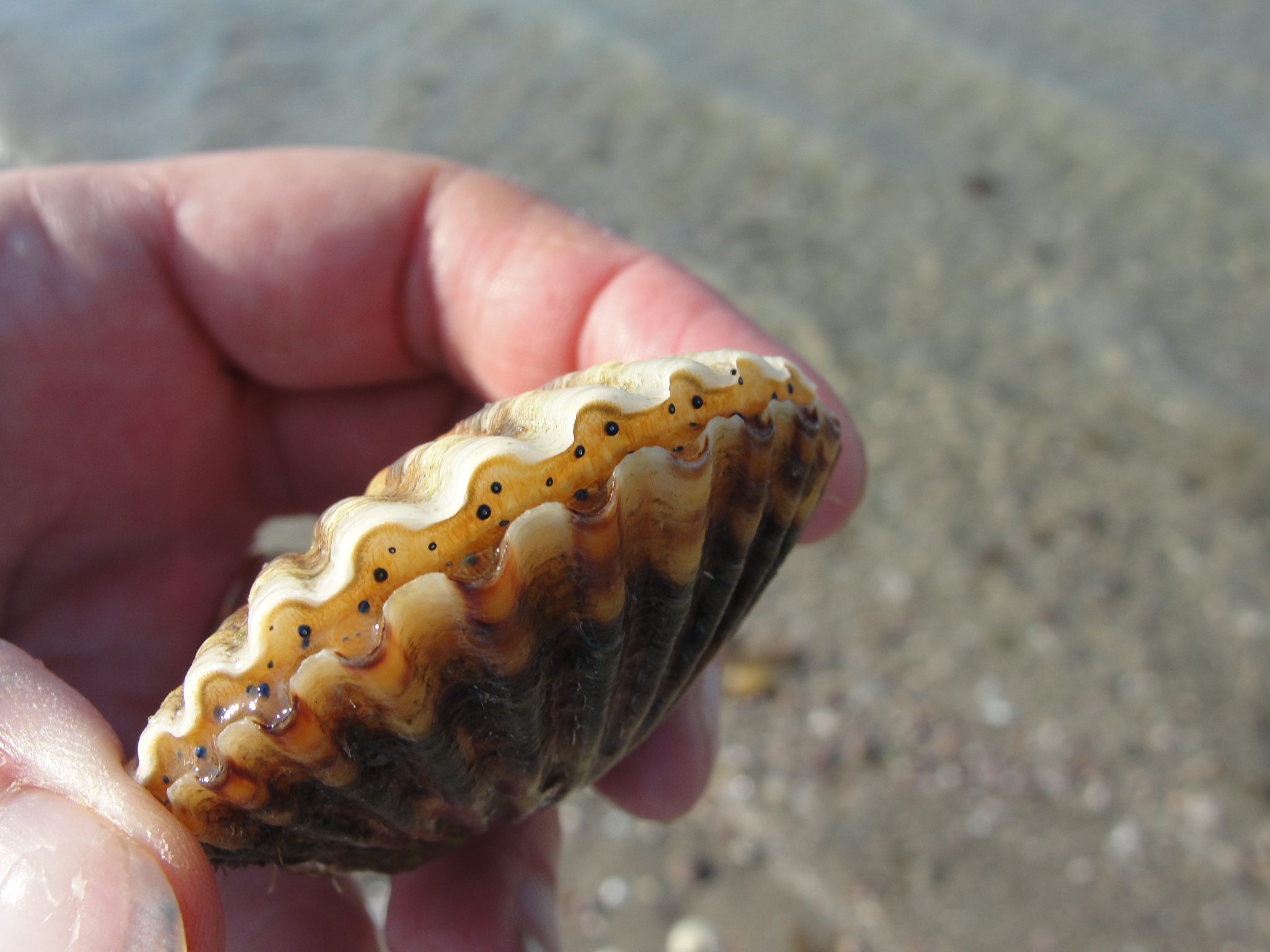
Blue Eyed Scallops Mary Richmond's Cape Cod Art and Nature
A three-inch bivalve with male and female organs, it boasts eighteen pairs of baby blue eyes, and a two-year lifespan that winds down soon after it reproduces. Then we eat it. In his 2013 memoir, chef Sanford D'Amato described his first bite of Peconic Bay scallops as "lush briny candy.". He was not the first foodie to be gobsmacked by.

blue eyed scallop, photo by Rosa Fuller Fish pet, Illustration, Photo
Blue-Eyed Beauties. One of the most beautiful shells on the beach is that of the scallop, prized by beachcombers for its colorful distinctive fanlike shell. With over 400 varieties found worldwide in every ocean, scallop shells have been used by ancient civilizations such as the Incas and Mayans for their beauty as well as function.
Bay Scallop The Blue Dots Are It’s Eyes. 30 to 40 Blue Eyes Around
Stalking The Blue-Eyed Scallop (19640101) Paperback - January 1, 1964. Euell Gibbons tells how to find marvelous food in every coastal area of North America.This book contains numerous drawings for identification and abounds in recipes and cooking tips from chowders and clambakes all the way to simple epicurean treats such as boiled.
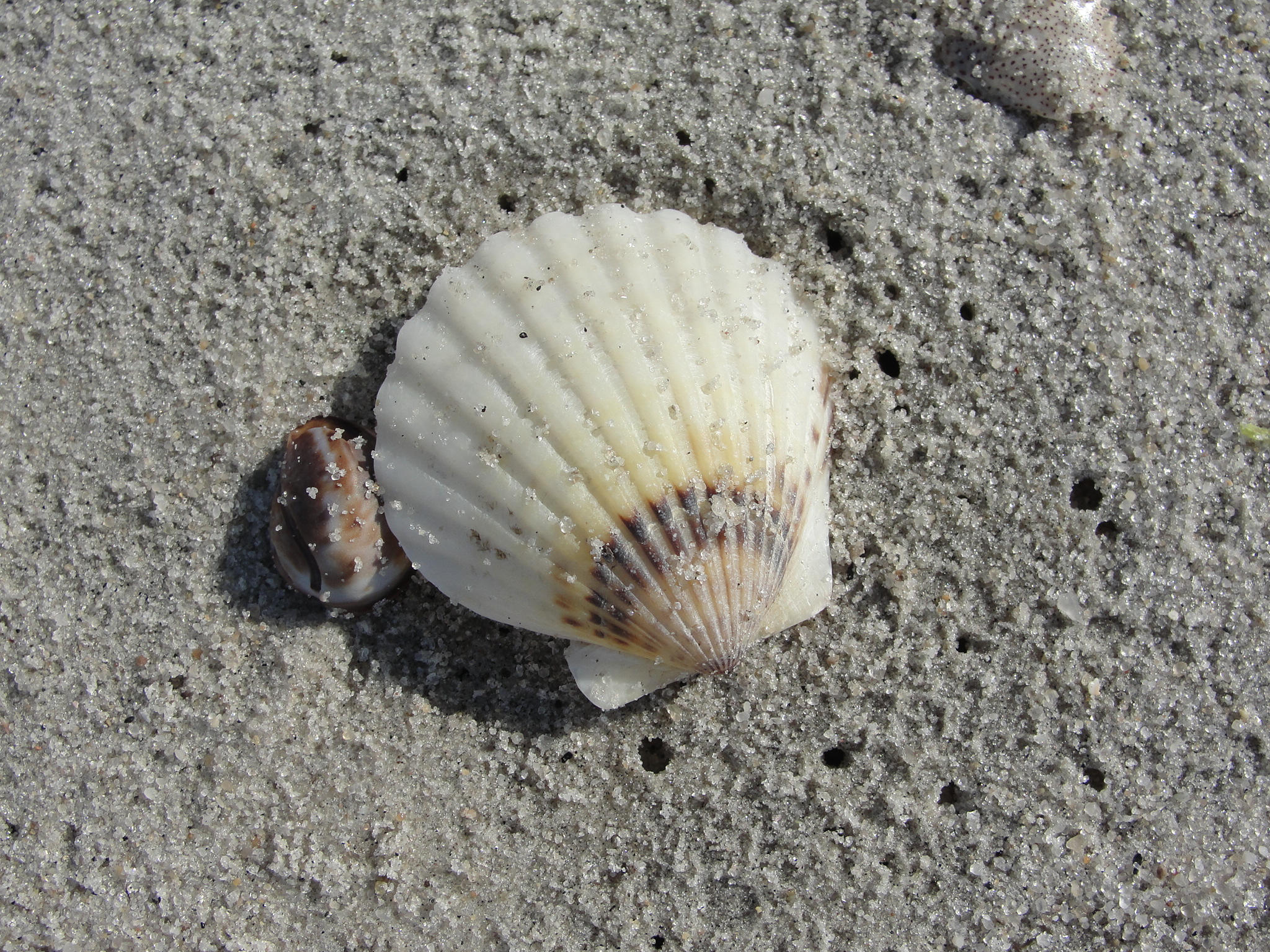
Here comes summer! Mary Richmond's Cape Cod Art and Nature
The part we consume is their adductor muscle and keeps the two shells of this bivalve together. Inside of the two shells they have a gut, gonads, gills, a mantle and eyes. Scallop's eyes are not real eyes like we have but allow them to see shadows to know when a predator is above them. Their blue eyes also make it easier to find when snorkeling.

Those dots are the scallops blue eyes. This one was rinsed in the Gulf
Stalking the Blue-Eyed Scallop (19640101) Paperback - Illustrated, April 1, 2020. This foraging and cooking classic was first published in 1964 and has continued to be one of America's most appreciated works on the subject of seafood. As a young man, Euell Gibbons kept his family alive during the Dust Bowl era by gathering wild foods.

Blue Eyed Scallop Sticker 5 Inch Etsy
*Stalking the Blue-Eyed Scallop is different from the other two books because it focuses primarily on seashore animals of the eastern seaboard. Gibbons covers crabs, clams, mussels, sea urchins, seaweeds and a few seashore land-based edibles in a wonderful kind of detail. As in his other books, he reports knowledge based on experience.